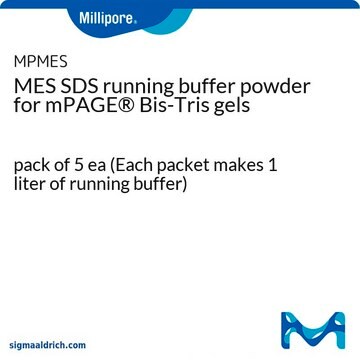M0164
MES hemisodium salt
dry powder
Synonym(s):
2-(N-Morpholino)ethanesulfonic acid hemisodium salt, 4-Morpholineethanesulfonic acid hemisodium salt
About This Item
Recommended Products
form
dry powder
useful pH range
5.5-6.7
pKa
6.1
SMILES string
[Na+].OS(=O)(=O)CCN1CCOCC1.[O-]S(=O)(=O)CCN2CCOCC2
InChI
1S/2C6H13NO4S.Na/c2*8-12(9,10)6-3-7-1-4-11-5-2-7;/h2*1-6H2,(H,8,9,10);/q;;+1/p-1
InChI key
KHQSUKMBWPKXOP-UHFFFAOYSA-M
Looking for similar products? Visit Product Comparison Guide
Related Categories
General description
Application
Packaging
Reconstitution
Storage Class Code
11 - Combustible Solids
WGK
WGK 3
Flash Point(F)
Not applicable
Flash Point(C)
Not applicable
Personal Protective Equipment
Certificates of Analysis (COA)
Search for Certificates of Analysis (COA) by entering the products Lot/Batch Number. Lot and Batch Numbers can be found on a product’s label following the words ‘Lot’ or ‘Batch’.
Already Own This Product?
Find documentation for the products that you have recently purchased in the Document Library.
Customers Also Viewed
Our team of scientists has experience in all areas of research including Life Science, Material Science, Chemical Synthesis, Chromatography, Analytical and many others.
Contact Technical Service







